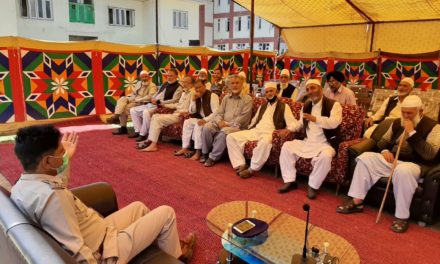![]()
KNZ NEWS DESK
New Delhi, Feb 10: The government on Thursday said it has blocked more than 60 social media accounts, including YouTube channels and Facebook and Instagram pages, in the last two months for spreading anti-India fake news.
Replying to supplementary questions in the Upper House, Minister for State for Information and Broadcasting L Murugan said the government is very much concerned about the freedom of speech and freedom of expression.
Asked about action taken against those spreading fake news, and publishers of anti-national material, he said more than 60 accounts have been blocked including those on YouTube, Twitter, Facebook and Instagram.
“These YouTube channels are sponsored from Pakistan,” he said.
On fake news through newspapers, the minister said the Press Council of India is an autonomous statutory body and takes care of the journalists ethics code.
“Journalists have to follow ethics code. Wherever they have not followed the ethics code under the Press Council Act Section 14, action has to be initiated. In more than 150 cases, we took action against them,” he said.
Asked about Techfog app roles in spreading fake news, Murugan said the government has established a fact check unit, which has responded to more than 30,000 queries.
This unit is also verifying viral fake news, he added.
According to an official statement, the ministry on January 21 had ordered blocking of 35 YouTube based news channels and two websites which were involved in spreading anti-India fake news in a coordinated manner over digital media. Additionally, two Twitter accounts, two Instagram accounts, and one Facebook account were blocked.
In December also, 20 YouTube channels and two websites were blocked, the official statement had said.
In a written reply to the starred question, Information and Broadcasting Minister Anurag Singh Thakur said the government has statutory and institutional mechanisms in place to combat fake news.
A “Fact Check Unit” has been setup under the Press Information Bureau of this Ministry in November, 2019 which takes cognisance of fake news both suo motu and by way of queries sent by citizens on its portal or through e-mail and WhatsApp.
“The unit responds to relevant queries with correct information when the same pertains to Central Government or forwards them to States/UTs in other cases. The Unit also maintains a Twitter account @PIBFactcheck and posts cases of fake news, being busted, on the same on regular basis. PIB Fact Check Unit has so far responded to 30,533 actionable queries,” he said.
For print media, the Press Council of India (PCI), a statutory autonomous body set up under the Press Council Act, 1978, has framed “Norms of Journalistic Conduct” for adherence by the media.
These norms emphasise the principles of accuracy and fairness as well as pre-publication verification.
The PCI has formulated specific norms to refrain print media from publication/ dissemination of fake or false news.
For electronic media (Television), all TV channels are required to adhere to the Programme Code under the Cable Television Networks (Regulation) Act, 1995.
As per the code, programmes should not contain anything obscene defamatory, deliberate, false and suggestive innuendos and half-truths.
For digital news, the government has notified the Information Technology (Intermediary Guidelines and Digital Media Ethics Code) Rules, 2021 on February 25 2021, under the Information Technology Act, 2000 which inter alia provides for a Code of Ethics for adherence by digital news publishers.
“Appropriate action is taken in cases where violation of norms, codes etc., are found. The government also issues advisory from time to time to the media to adhere to the laid down codes,” Thakur said.–(PTI)
























